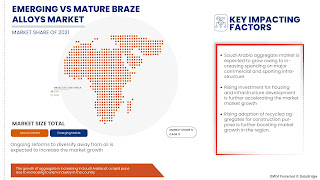"Civil Construction: A Pillar of Modern Infrastructure Development"
Civil construction plays a vital role in shaping the infrastructure of modern societies. It encompasses a wide range of activities, including building roads, bridges, dams, and residential and commercial spaces. However, as the industry evolves, the demand for more specialized services like corporate interiors, turnkey interior solutions, and offshore construction has grown significantly. These niches highlight the diverse opportunities within the civil construction sector, making it a cornerstone of urban development.
Corporate Interiors: Redefining Workspaces
The civil construction industry has expanded its expertise to include corporate interiors, which are essential for creating functional and aesthetically pleasing work environments. These projects go beyond the structural framework to focus on designing spaces that enhance employee productivity and reflect a company's brand identity.
Corporate interior construction involves tasks such as partitioning, flooring, ceiling installation, and incorporating energy-efficient lighting systems. The rise of open-plan offices, collaborative spaces, and hybrid work setups has further emphasized the importance of modern, adaptive designs. By integrating advanced technology and sustainable materials, the civil construction industry ensures that corporate interiors meet the evolving needs of businesses.
Turnkey Interior Solutions: Comprehensive and Hassle-Free
Another significant trend in civil construction is the rise of turnkey interior solutions, which provide end-to-end services for clients. This approach covers every stage of interior development, from initial planning and design to final execution and delivery. Turnkey solutions are particularly appealing to clients who want a seamless and time-efficient process without dealing with multiple contractors.
For instance, a company seeking to establish a new office space can rely on a single provider for all interior needs, including design, furniture installation, electrical work, and finishing touches. This model not only saves time and reduces costs but also ensures consistency in quality and design. As a result, turnkey interior solutions have become a preferred choice for residential and commercial projects alike.
Offshore Construction: Meeting Global Challenges
Civil construction has also extended its reach to offshore construction, addressing the growing demand for infrastructure development in marine environments. This includes building offshore oil platforms, wind farms, ports, and other maritime structures. Offshore construction projects require specialized skills, advanced technology, and strict adherence to safety and environmental standards.
The complexity of offshore construction lies in its challenging environments, which often involve unpredictable weather, deep waters, and logistical difficulties. Despite these challenges, the sector has thrived due to its role in supporting renewable energy initiatives, such as offshore wind farms, which are crucial for reducing carbon emissions.
Conclusion
Civil construction is a dynamic industry that continuously adapts to meet the needs of modern society. Whether it's designing state-of-the-art corporate interiors, delivering efficient turnkey interior solutions, or conquering the challenges of offshore construction, the sector demonstrates its versatility and innovation. As urbanization and global infrastructure demands grow, civil construction will remain at the forefront, shaping the future of sustainable and functional development.



Comments
Post a Comment